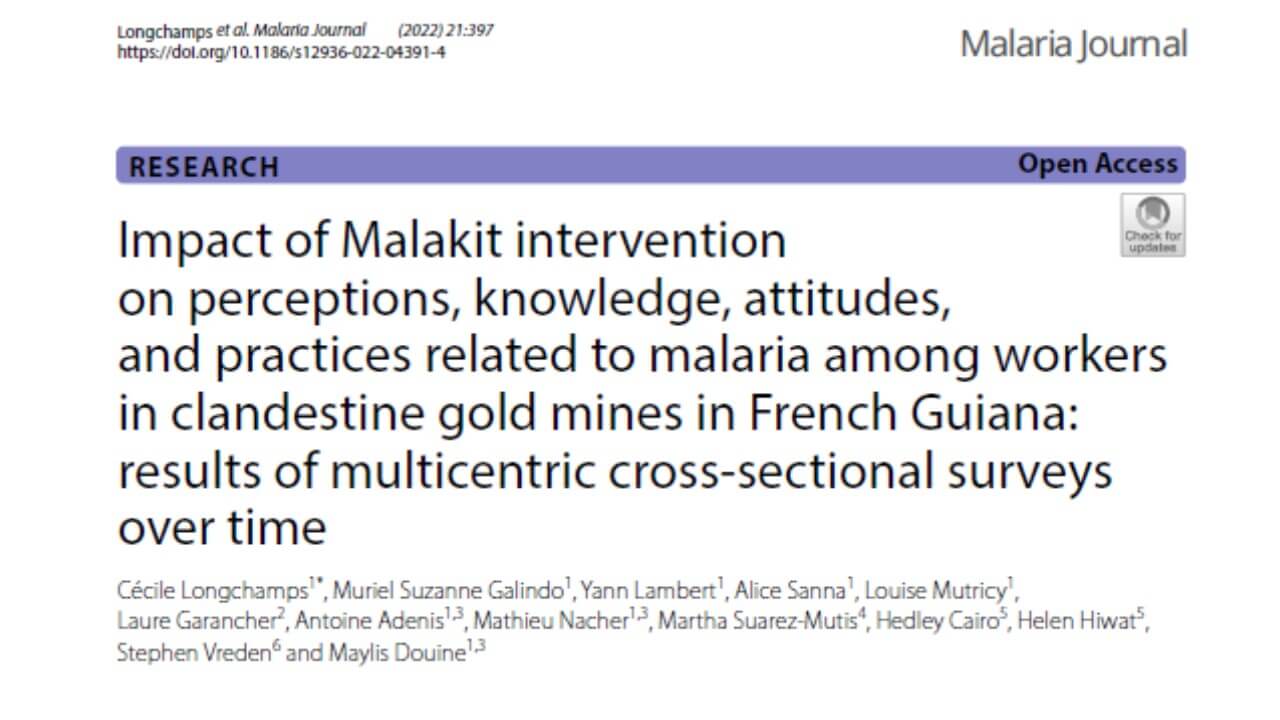Cet article décrit l’évolution des perceptions, connaissances, attitudes et pratiques (CAP) liées au paludisme chez les orpailleurs clandestins entre 2015 et 2019, et estime l’impact de Malakit sur ces CAP.
Retrouvez l’article complet ici!
Résumé
Background
Clandestine gold miners remain key hosts for malaria in French Guiana (FG) and contribute to imported malaria cases in Suriname and Brazil. The Malakit intervention, implemented in FG borders with Suriname and Brazil, provided gold miners with training on malaria and kits for self-diagnosis and self-treatment. Having shown a likely impact on malaria transmission, Suriname has now implemented it in routine care for cross-border moving populations. However, a decrease in malaria transmission is frequently associated with a decrease in risk perception, knowledge, and good practices regarding malaria. This study aims to describe the evolution of the perceptions, knowledge, attitudes, and practices (KAP) related to malaria among clandestine gold miners between 2015 and 2019, and to estimate the impact of Malakit on the FG/Suriname border.
Methods
The primary outcome was the overall KAP score over time and among participants and not participants in the Malakit intervention. A propensity score matching analysis and an inverse probability of treatment weighing analysis were used to estimate the Average Treatment effect on the Treated and the Average Treatment Effect of Malakit, respectively.
Results
Perception and knowledge scores were significantly lower in 2019 compared to 2015 (− 0.27 and − 0.23 points, respectively, p < 0.001) while attitude and practice scores were higher (+ 0.16 and + 0.47 points, respectively, p < 0.001). The overall KAP score was significantly higher among participants in Malakit with both propensity score matching (+ 0.72 points, 95%IC [0.29; 1.15]) and inverse probability of treatment weighting analysis (+ 0.70 points, 95%IC [0.34; 1.05]).
Conclusion
A decrease in perception and knowledge about malaria but an improvement of attitudes and practices as the incidence of malaria decreased are observed. The Malakit intervention seems to have a significant positive impact on the overall KAP related to malaria. The integration of this strategy into malaria control programmes could help to improve the KAP, even in areas where malaria is nearly eliminated, through optimal training and health empowerment.

